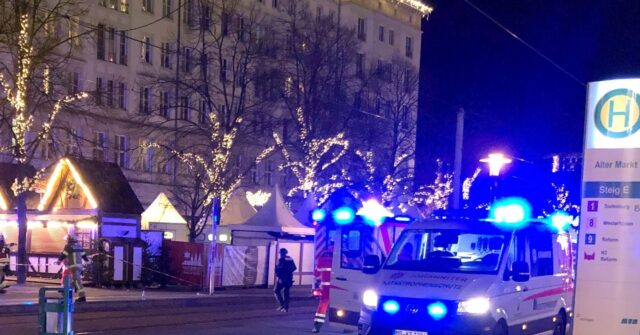On a tragic Friday evening, a driver deliberately crashed a car into a crowd at a Christmas market in Magdeburg, Germany, resulting in at least two deaths and many injuries, intensifying fears surrounding public safety during festive gatherings. The suspected attacker, identified as “Taleb A.”, is a 50-year-old doctor from Saudi Arabia who previously sought asylum in Germany in 2016, citing fears of persecution due to his atheism. Reports indicate that he not only fled his home country but also created a website aimed at assisting fellow atheist asylum seekers in reaching Germany. In interviews, he has portrayed himself as a staunch critic of Islam, claiming notoriety for being the “most aggressive critic of Islam in history.”
Emerging details concerning Taleb A.’s political views suggest a complicated identity. While he has openly supported the controversial anti-immigration Alternative for Germany (AfD) party and made associations with well-known figures like Elon Musk and Alex Jones, he has also self-identified as a “leftist.” His social media activity raised alarms, showcasing posts where he criticized the German state for what he perceived as attempts to “Islamize Europe” while expressing feelings of persecution. These sentiments, coupled with unhinged messages hinting at violent revenge against Germany, have led authorities to consider the possibility of mental illness fueling his actions.
As updates unfolded from the authorities, at least 70 individuals, including 15 who suffered serious injuries, were reported affected by the attack. Eyewitnesses described a horrific scene as the vehicle sped through the market, with statements characterizing the aftermath as reminiscent of “war-like” conditions. Local government officials, including Saxony-Anhalt’s Prime Minister Reiner Haseloff, reiterated the intentional nature of the incident and emphasized its tragic occurrence so close to the Christmas season, which typically symbolizes joy and community.
Political leaders swiftly reacted to this heinous act. German Chancellor Olaf Scholz expressed his condolences and solidarity with the victims’ families, promising support to the citizens of Magdeburg during this distressing time. Friedrich Merz, a leading candidate from the Christian Democratic Union (CDU), echoed similar sentiments, highlighting the tragedy’s weight on the community and commending the emergency responders for their efforts. The focus from opposition figures, such as the Alternative for Germany party leader Alice Weidel, leaned towards questioning the broader implications of such acts and the need for intensified security measures.
As police continued their investigation, securing the area and searching for potential explosives, they managed to apprehend the driver after he had traversed approximately 400 meters through the crowd. The incident bore a chilling resemblance to a previous terror attack, where a man used a truck to target a Christmas market in Berlin in 2016, leading to multiple fatalities. The echo of this historical context amplifies fears among citizens as they navigate public spaces during festivities in Germany.
The unfolding narrative of Taleb A., intertwined with the public reaction and political discourse, exemplifies the ongoing complexities of navigating extremism, mental health, and migration. As the nation grapples with this deeply unsettling event, conversations regarding community safety, the nature of radicalization, and the intersection of personal belief systems in political landscapes come to the forefront. The aftermath of the attack will likely shape policies and public attitudes towards asylum seekers, security in crowded spaces, and the societal impacts of ideologies perceived as extremist.

